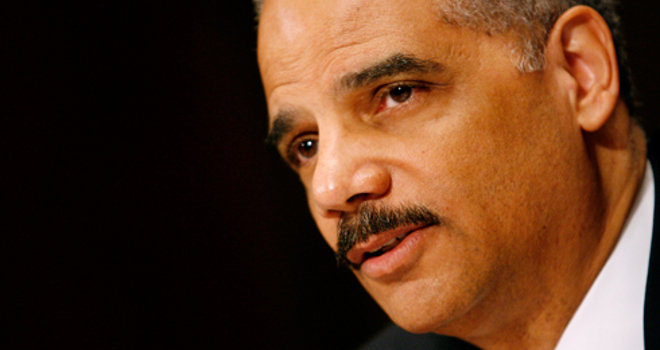It wasn’t long after the Justice Department blocked South Carolina’s voter ID law on Friday that Republicans accused the Obama administration of putting the President’s reelection ahead of preventing voter fraud.
“Obama’s S.C. voter ID decision shows he’s putting the 2012 election above policy by opposing efforts to protect against cheating and fraud,” RNC Chairman Reince Priebus wrote on Twitter, indirectly acknowledging that voter ID laws suppress Democratic voter turnout. “Moreover, from S.C. decision looks like they just want to benefit from cheating and fraud.”
“It is outrageous, and we plan to look at every possible option to get this terrible, clearly political decision overturned so we can protect the integrity of our electoral process and our 10th Amendment rights,” Gov. Nikki Haley said in a statement.
Here’s the problem, though: In-person voter impersonation fraud is an extremely risky and ineffective way to try to steal an election and there’s been no evidence of in-person voter impersonation fraud — the only type of voter fraud that strict voter ID laws could potentially prevent — taking place in South Carolina. But Republicans have taken the position that the laws are necessary. They also strongly reject the suggestion that the laws are racially discriminatory, though South Carolina’s own data showed that non-white voters were 20 percent more likely than white voters to lack the specific type of photo voter ID required under South Carolina’s statute.
Voting rights groups were happy with DOJ’s decision. The ACLU’s Katie O’Connor said in a statement that the decision “sends a strong reminder about how effective the Voting Rights Act is for ensuring states do not implement voter suppression laws that will keep eligible citizens away from the polls.”
But if South Carolina’s law is discriminatory, why isn’t the Justice Department opposing the same types of voter ID laws in other states?
That’s a question many are asking. If subjected to the Justice Department’s standard, few if any of the voter ID laws passed this year would be likely to pass muster. Because of the state’s history of racial discrimination, South Carolina is required to have their election laws “precleared” by the Justice Department. The burden is on the state to prove that their laws are not discriminatory.
In South Carolina’s case, DOJ’s letter said, they “did not include any evidence or instance of either in-person voter impersonation or any other type of fraud that is not already addressed by the state’s existing voter identification requirement and that arguably could be deterred by requiring voters to present only photo identification at the polls.”
Other states would have trouble demonstrating how a specific form of photo identification issued by the DMV — as opposed to other forms of identification — would prevent in-person voter impersonation fraud.
Jeffrey Toobin argues in the New Yorker that Attorney General Eric Holder’s speech on voting rights earlier this month hinted that DOJ could pursue cases against states not required to get their laws precleared.
“Even in states that are not covered by the pre-clearance requirements, the Justice Department has the right to sue to stop intentional–deliberate–attempts to limit voting rights. Holder’s speech suggests that his Department might do just that in states like Wisconsin, Kansas, and Tennessee, which have new photo i.d. requirements,” Toobin writes. “The laws are, quite literally, indefensible–so Holder ought to make the states that have them try to defend them.”
Officials in South Carolina has suggested they’ll take their case to federal court. The Justice Department has requested more information from Texas, another state which passed a voter ID law and has to get their election laws precleared.









